Blog
Spiritual Teachings
from the Heart of Satsang
Browse by Topic through the Archive
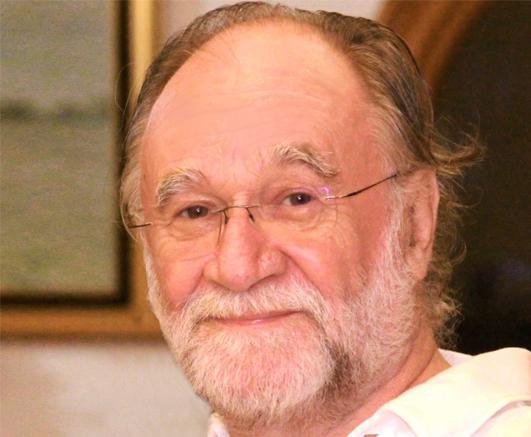
Or use the Search Function
Latest Blog
A Former Classmate Visiting Bhagavan
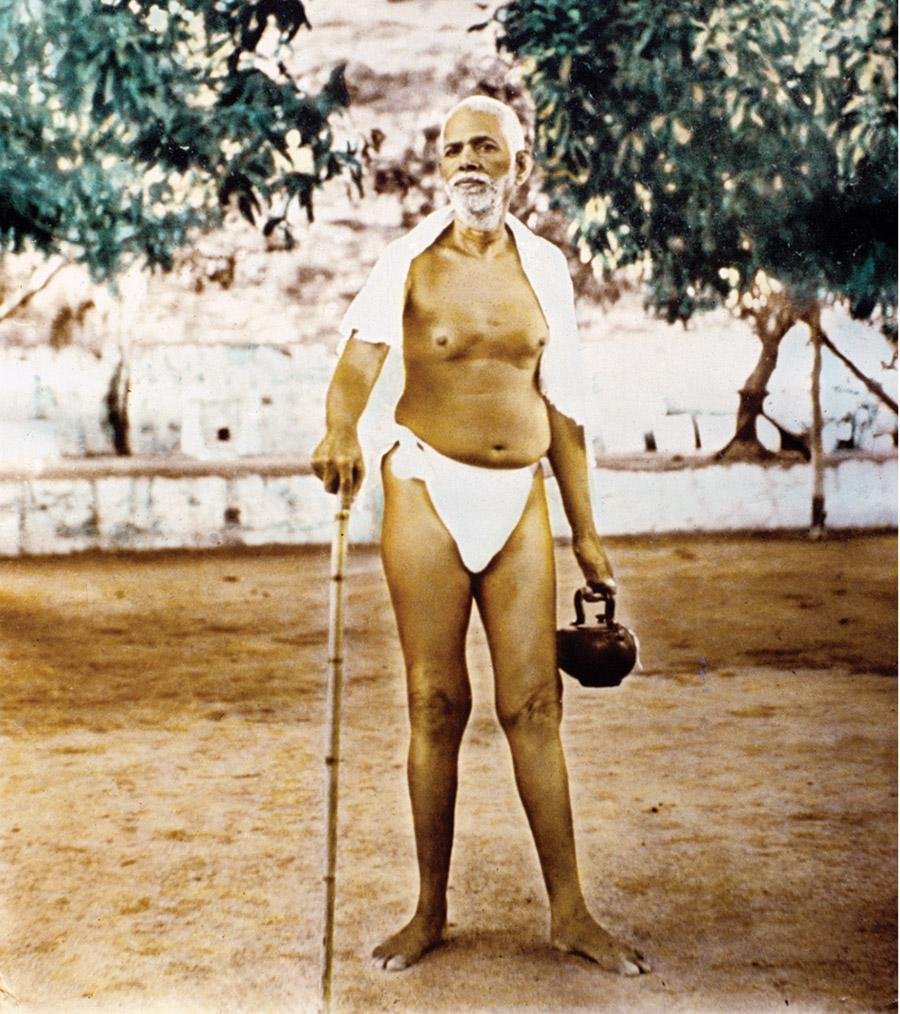
Aham Sphurana
A Glimpse of Self Realisation
New Book about Sri Ramana Maharshi
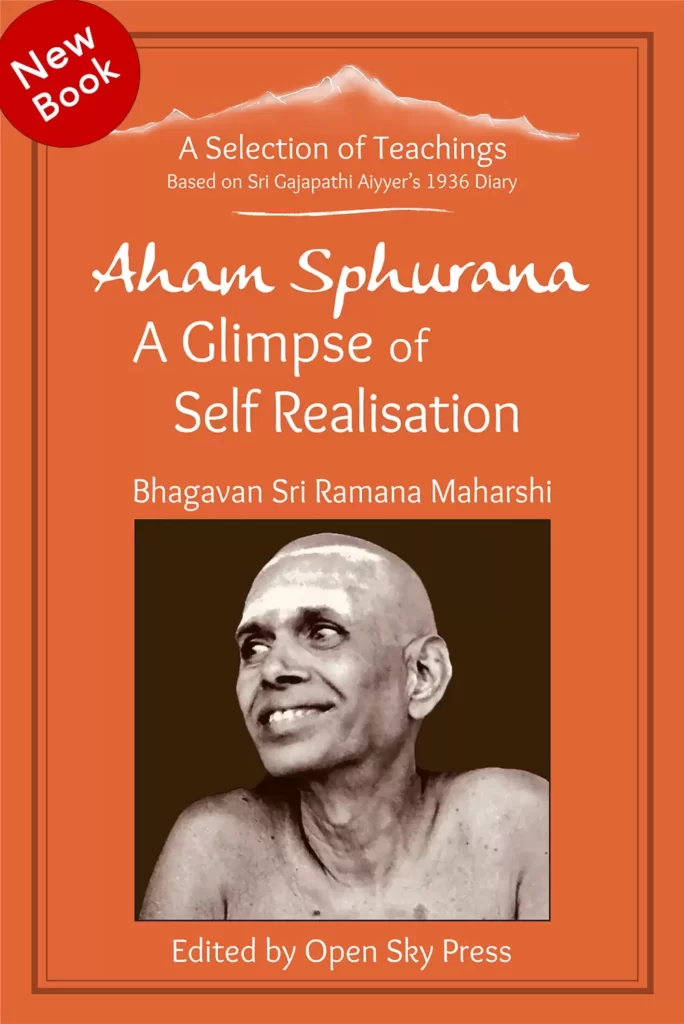
Available Worldwide
On www.openskypress.com and Amazon:

“In my opinion, Aham Sphurana, a Glimpse of Self Realisation, will become a Treasure Trove of Wisdom to the Seekers of Truth in general, and particularly to the devotees of Bhagavan.”
Swami Hamsananda – Athithi Ashram, Tiruvannamalai
A Former Classmate Visiting Bhagavan
Mr. Abdul Wahab, a former classmate of Sri Bhagavan’s at the American Mission High School, Madurai, has paid a visit to the Ashram. The master is beaming with delight to see him. Then both the master and his former classmate shared with the Hall their reminiscences appertaining to each other.
B.: In those days I would be exceedingly fond of playing football. Sahib [for that was how Sri Bhagavan addressed the Moslem gentleman] would take particular care that he always played on the same side as myself. Once whilst playing I happened to injure my right leg, which then became inflamed and swollen. Sahib took me to a nearby hospital and ensured that some medicine was applied over the affected area. Only after the swelling had subsided somewhat could I return home; otherwise I would be upbraided by my elders, who did not approve in the slightest of me participating in games of any sort.
A.W.: I feel disturbed to ponder over the fact that I used to call Bhagavan familiarly by name for so many years, not recognising or realising his greatness. Venkateswaram Aiyyer was the name given to Sri Bhagavan at birth, since the kuladheivam of their family was Thirupathi Venkatachalapathy; however, at the time of enrolling him in school it was, for some reason, changed to Venkatraman.
Sri Bhagavan used to take me to the Thirupparangundram Murugar Kovil often on Saturdays; he would insist that together with himself I also should visit the shrines of the various gods and come about in circumambulation around the temple. I would protest saying that I belonged to the Islamic faith, where idol-worship would be considered apostasy and heresy; but he would always overrule my objections, saying that these differences were not inherent in God but had merely been created by man.
Bhagavan would also occasionally take me to Thirucchuzhi; he went there periodically to see his family. Bhagavan’s mother was an orthodox brahmin, but still she would serve me food whenever she saw me. On occasions when I declined to accompany him, he would meet me the next day and hand over a tiffin-box, saying, “Mother has asked me to give you these comestibles…”. Such was the kindness of Bhagavan’s mother…!
Both the Moslem and Sri Bhagavan had moist eyes at this point, and the master suddenly looked away from the Hall and at the window, remaining so for sometime. At the time of taking leave, the Moslem presented the master with a small quantity of thangabhasmam, saying, “I have procured it especially for Sri Bhagavan since I know that he is an asthmatic.”.
B.: This cannot be accepted. There are so many asthmatics around the world. If all of them start clamouring for thangabhasmam, will the quantity of gold left on the earth suffice? Moreover, why all these fancy things for me? Can I afford such things? I am a daridranarayanan [in service to the poor] who must make do with whatever is available. Such exotic items are for those who have a taste for them and are able to afford them. What can I afford? Nothing. Even the koupeenam I am wearing is given by somebody else, and not earned by me. What right have I got to partake of these fanciful indulgences? Some பழையது [ ] with a small quantity of buttermilk to go along with it will do for me.
A.W.: [piteously] Still, for my sake will Bhagawan not change his mind and accept my presentation?
A voice near the Sofa said – It is given as a token of the gentleman’s love and affection for Bhagavan; Bhagavan must kindly accept it for our sake if not for his own. Yet the master would not be persuaded.
B.: Why all these fancy items? You yourself have family-members who are suffering from asthma: is that not so? Is this body more important than or in any way superior to those bodies? How is it that ignoring them you have brought this medicine over to me? If you give this to those who truly need it, they will feel happy. I have no use for such things. I cannot think “Oh! we are taking medicine for our good health.” and feel elated. [smiling, in demure fashion saying—] I hope you are not angry with me…!
The old school-friends both laughed heartily. Presently the Moslem gentleman prostrated in front of the master and departed from the Hall.
Edited by John David Oct 2021

Mrs Piggot’s Diary

Aham Sphurana
A Glimpse of Self Realisation
New Book about Sri Ramana Maharshi

Available Worldwide
On www.openskypress.com and Amazon:

“In my opinion, Aham Sphurana, a Glimpse of Self Realisation, will become a Treasure Trove of Wisdom to the Seekers of Truth in general, and particularly to the devotees of Bhagavan.”
Swami Hamsananda – Athithi Ashram, Tiruvannamalai
Mrs Piggot’s Diary
I was told that the Maharshi had his finger on the pulse of the whole ashram, although he appeared prima facie totally unconcerned with all mundane affairs. For instance, when in the Hall, he was supposed to know what was going on even in the kitchen — and incidentally I was surprised to find that he himself assisted in the cutting up ofvegetables for the daily meal.
I was also told that he knows what is passing in the minds of people. Of this latter ability, I had a small personal experience. It was in the afternoon, and I was in the far corner of the Hall reading the translation of a collection of aphorisms written in— so it appeared to me — a flowery and artificial vein. I was bored and slightly irritated.
Suddenly one of the devotees stood before me with another book in his hand — all the ashram books were bound in brown paper and looked exactly alike — and said, ‘Bhagavan asks me to give you this. He thinks it will be more sympathetic to your type of mind.’ It was!
How could Bhagavan know what I was reading? I was sitting far away, with many people in between us, blocking his line of vision. But I had previously noticed that many times he would answer a question in my mind whilst it was only in the process of being formulated. This happened too often to be a coincidence.
Q.: Sometimes I feel thought stopping and the feeling of beingness underneath is exposed and revealed. At the same time a pulsating sensation is felt on the right-hand side of the chest. Is it right?
B.: Yes. Thoughts must cease and reason disappear for ‘I-I’ to rise up and be felt. Feeling is the prime factor and not reason.
Q.: Why should it be felt in the chest but not in the head?
B.: Because body-consciousness is located there.
Q.: When I see outside the sensation disappears. What is to be done?
B.: It must be held on to incessantly.
Q.: If one is active in the world whilst holding on to such sensation, will his actions be always right?
B.: They ought to be. However, such a person is not concerned with the right or wrong of his actions. Such a person’s actions are God’s and therefore they must be right.
Q .: Why then are the restrictions of food given for such persons also?
B.: Your present experience is due to the influence of the physical atmosphere you presently find yourself in. Can you have it outside this atmosphere? Now in you the experience is spasmodic. Until it becomes permanent, practice is necessary. Restrictions of food are aids for such experience to be repeated. After one gets established in Truth the restrictions drop away naturally. Moreover, foodinfluences the mind and for this reason the same must be kept pure.
Every experience has to end and the last day of my visit to the
ashram arrived, and with it a great sadness filled my heart. I must go back to worries, problems and irritations. Here all was peace. Here it was comparatively easy to live in the mood of the spirit. Is this why so many holy people retire to solitude, I wondered.
I had my farewell talk with Bhagavan. He was so gentle and human. We discussed thedifficulties of everyday life and mundane problems. I asked again about the relation of the body to the ‘I’. He gave this simile:
“You came up from the bungalow this morning in a cart. Yet you do not say, “The cart came up.” You say, “I came up.” You did not make the mistake of identifying yourself with the cart. In the same way, look upon your body as you do the cart. Treat it well, and it will be a good servant and instrument. But do not be deceived into thinking that it is ‘I’.”
He again stressed the necessity to see only the Self in everything.
“Act automatically, so to speak, and let ‘It’ do the work. And ‘It’ always will. Do not look for results. Do what is right at any given moment and leave it behind you then and there.”
At the end of our talk, he quoted that wonderful saying from the Upanishad:
‘When a man understands that he is the Self and therefore that he has himself become all things, what sorrow, what trouble can there be, to him who has once beheld this unity?’
As I went to say goodbye in the evening the ashram people clustered round in sympathy for my departure. I felt I had made and was leaving true friends. They were so simple and yet so genuine. There was a service taking place in the adjoining temple and an old Sanskrit hymn was being chanted. Just as I stepped into the cart the temple bell rang. This brought a smile of happiness on everyone’s face. Apparently, to hear a temple gong in the act of departure is a wonderful omen and brings peace. As I left Tiruvannamalai in the dawn of the next morning, I caught a last glimpse of Arunachala, the Holy Mountain, on which lives one of the saints of earth. It was red and glowing in the rising sun. I wept with joy to behold the sight.
Edited by John David Oct 2021

Leave a Reply Cancel reply
You must be logged in to post a comment.
Mixed Blogs
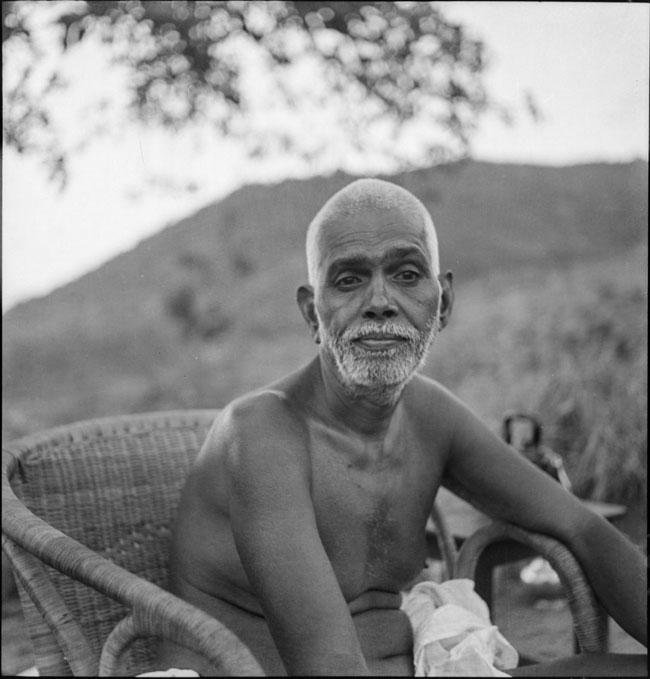
How shall we kill the mind?
B.: Is it the mind that wants to kill the mind? The mind cannot kill the mind. Anything that you endeavour to ‘do’ with the mind will only reinforce and perpetuate the notion of mind. Rather than pointlessly wondering, ‘How shall I eradicate the mind?’, go on seeking the mind. Incessant search for what mind is results in its disappearance.
The thing to do is to completely ignore the objects that appear by the reflected light of the mind, and instead seek the source of the mind’s illumination. If the source of the mind is continuously sought for, it begins to subside.

A Former Classmate Visiting Bhagavan
B.: Why all these fancy items? You yourself have family-members who are suffering from asthma: is that not so? Is this body more important than or in any way superior to those bodies? How is it that ignoring them you have brought this medicine over to me? If you give this to those who truly need it, they will feel happy. I have no use for such things. I cannot think “Oh! we are taking medicine for our good health.” and feel elated. [smiling, in demure fashion saying—] I hope you are not angry with me…!

Wisdom from Steve Jobs
′′ I have reached the epitome of success in the business world. In other people’s eyes, my life is a success.
However, aside from work, I had little joy. Ultimately wealth is just one fact I’ve gotten used to…

Reference Books and Translation
Much of the content presented here, showing Bhagavan reeling off verses from the Bible and other texts, are done so with the implicit assumption that the reader would naturally give himself to understand that Bhagavan was reading out from a book; certainly Bhagavan did not burst out with these lines of prose or, as the case may be, poetry, from extempore memory – at least, not in a majority of the cases.

Meditation
Practiced diligently, meditation techniques purify the mind because they bring awareness to unholy patterns of thought and feeling. Unhealthy thoughts cannot survive the penetrating light of awareness. Nothing purifies like experience of the Self, which releases a flood of healing, cleansing, spiritual energy into the conscious and unconscious minds.

Sex and Spirituality
Does sex help me to wake up or does it prevent me from that?
I think it can help and hinder. It depends. When sex is just pure, then actually it isn’t such a big deal. It’s an energy phenomenon.
Intimate relating creates an energy field, a circle between the two people. Normally, with sex, it’s between two people, but it could be the energy flowing through twenty people.

The Count
A sallow-faced gentleman, a foreigner, wearing a pencil moustache approaches Bhagavan after everyone has left the hall. I am instantly reminded of Count Orlok in Nosferatu, played so memorably by Max Schreck. He creeps near the Sofa, his long hands slightly outstreched in Bhagavan’s direction. I am glad he does not notice me, hidden away as I am in the Shadows at the back of the Hall. The attendants are asleep a yard or so away from me, and these prone bodies have also evidently escaped his attention. I want to cry out a warning to Bhagavan, but I am worried for my own safety. I wait with bated breath for the anticipated lines to be spoken.

Be As You Are
I have observed that amongst spiritual seekers there is some confusion about the topic of change. Often people have glimpses, moments or times when the identification with the thoughts, emotions and all the things that normally tie people down, breaks down.

Love as in Relationship Love
Love is an energy. It has nothing to do with boys and girls and falling in love and candlelight dinners. That’s not what I would call love. I would call that a disease.

The Simplicity of Being Here
Unfortunately we have been filled up in our education by all kinds of ideas. If we want to be really happy, then we have to be special, and if we do these special things, that will make us especially happy. So we aspire to having a big house or car or special clothes, because this is supposed to make us happy. This way of desire is actually the game of society, because societies are now-a-days based on this idea of desire.
But this game of desire simply doesn’t work, because it only can give you a feeling of satisfaction for a short moment.
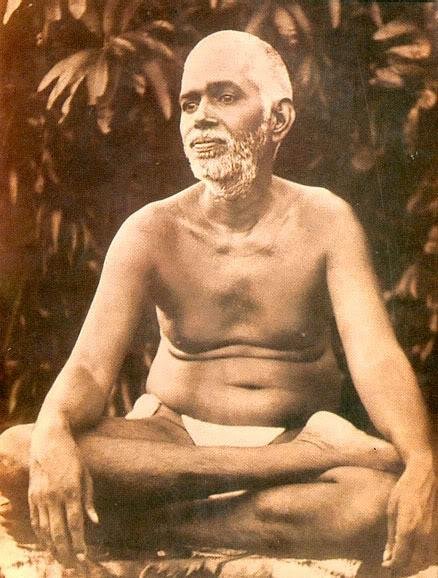
Sri Gajapathi Aiyyer Ashram Report
For the most part of today I was unable to go to the Ashram. Since Sri Cycle-Pillai seemed to be indisposed for the time-being with one of his occasional abdominal ailments, and was thus not in a position to do his usual chores for the Ashram. The sarvadhikari [manager] has asked me to purchase roots of the shathavari [Asparagus racemosus] plant from a herbs-dealer who put up his wares in different parts of the town on different days.

Who is the Spiritual Teacher?
In ancient times and still in modern India, a particular spiritual tradition is passed down from a teacher to a student and in turn to his student. So there is a sense of lineage and nobody takes any personal claim on that lineage. The truth is important, not the teacher.
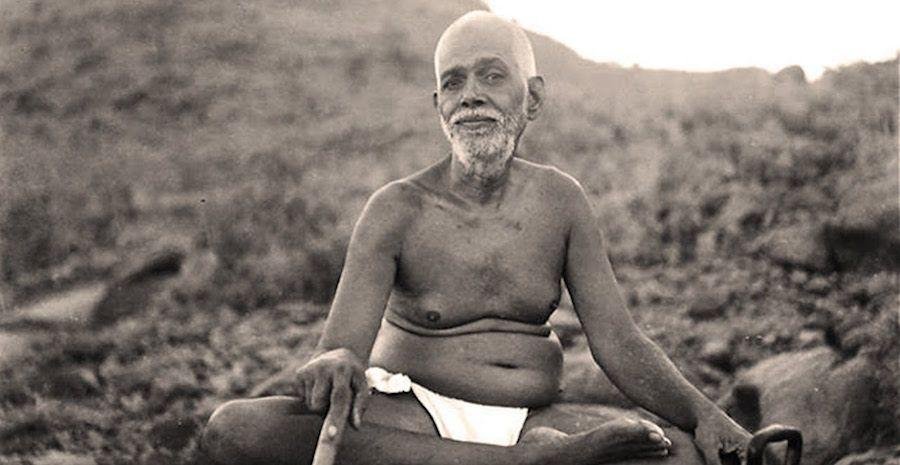
Meditation
Q.: I am unable to Realise the Self by means of meditation.
B.: Where are you now? Are you in the Self or out of it? Can there be anything apart from the Self?
Q.: I understand that the Self is non-dual. Yet ignorance prevents me from realising the non-dual Self.
B.: Who is ignorant of what? Are there then two selves, so that one of them can be ignorant of the other?
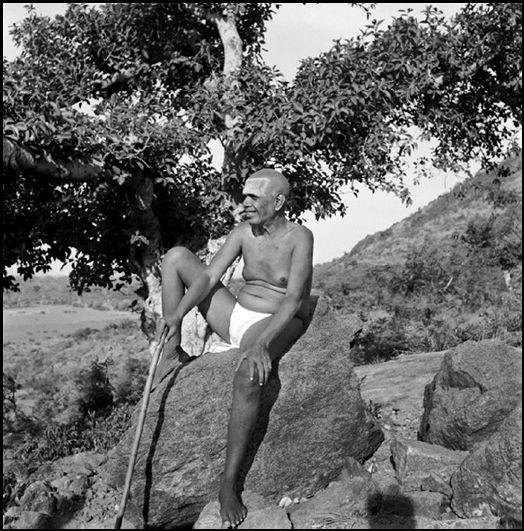
Destiny
Q. Is it true that Bhagavan has said, “If a man is destined not to Realise the Self, no matter what manner of aid or assistance is offered unto him or stands available so as to be plunged into ready deployment by him, he will not Realise the Self. On the other hand, if a man is destined to Realise the Self, no matter what manner of hindrance or trammel is placed across his path or is forced to be encountered by him, he will Realise the Self.”?
B.: The statement is correct.

Obstacles which Hinder Realisation of the Self.
Q: What are the obstacles which hinder Realisation of the Self?
B.: They are habits of mind (vasanas).
Q: What are the aids for Realisation?
B.: Introversion of mind is the one and only aid.
Q.: How can I achieve the same?
B.: By preventing the mind from straying out after thoughts, desires and imagined objects of sensory perception.
Q.: What are vasanas?
B.: Habits of thought, accumulated tendencies of mind, and intellectual proclivities.
Q.: How does one get rid of these hindrances?
B.: Seek the Self through meditation in this manner: trace every thought back to its point of origin






